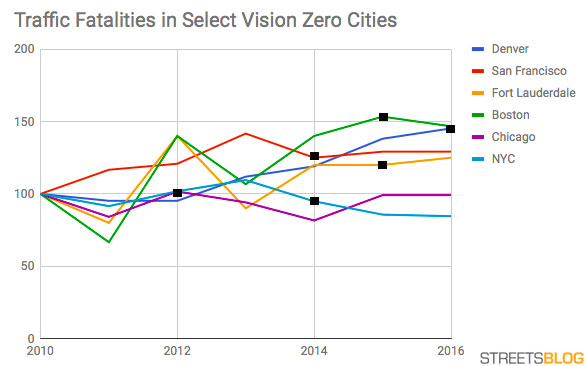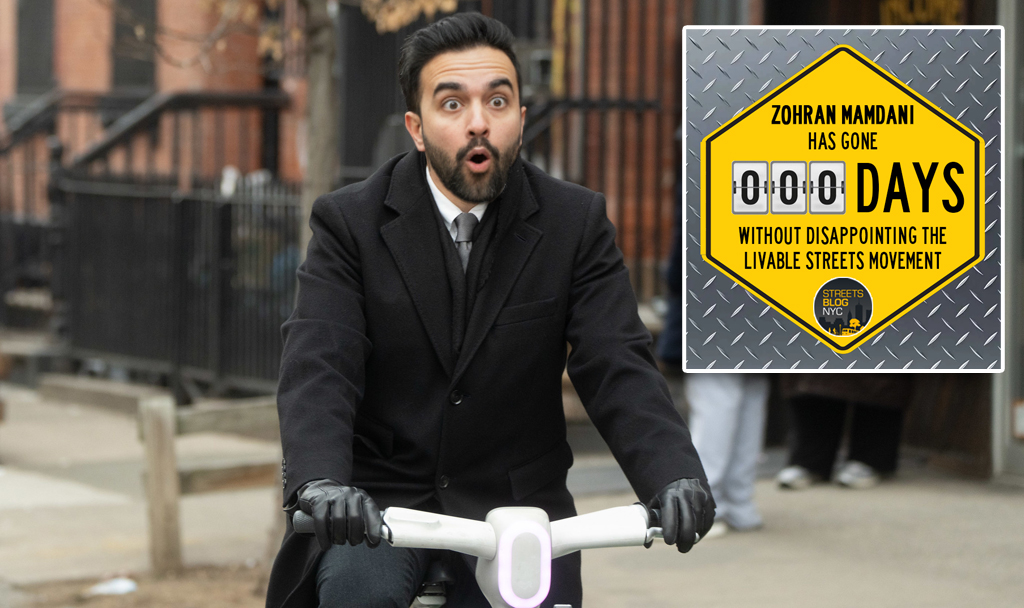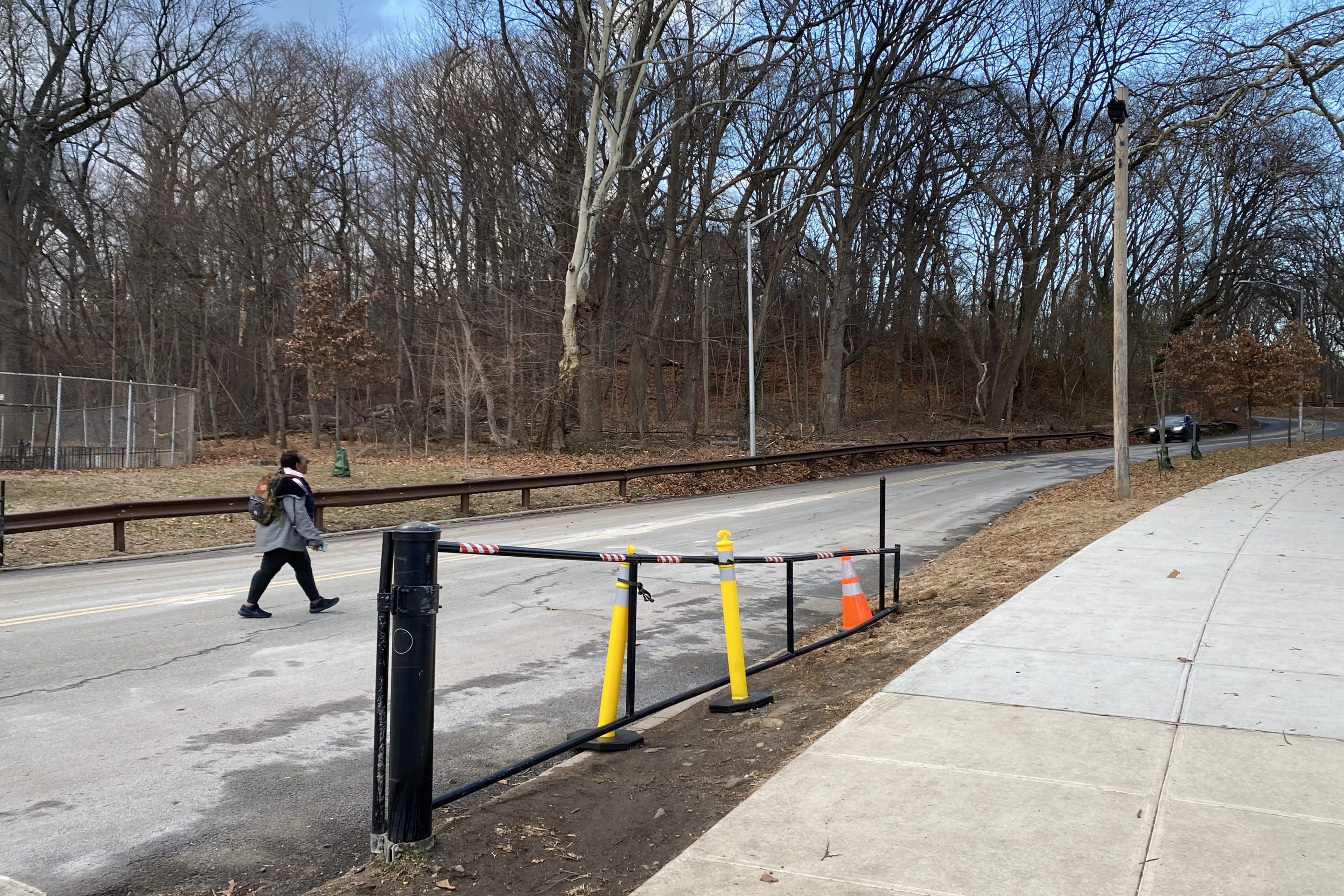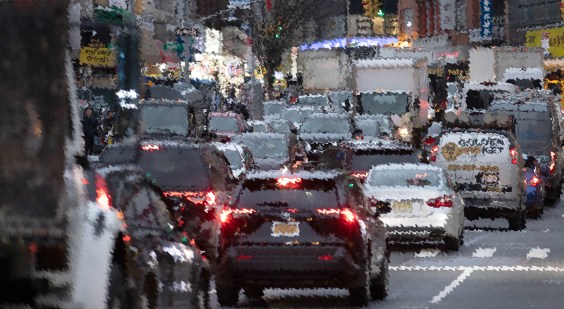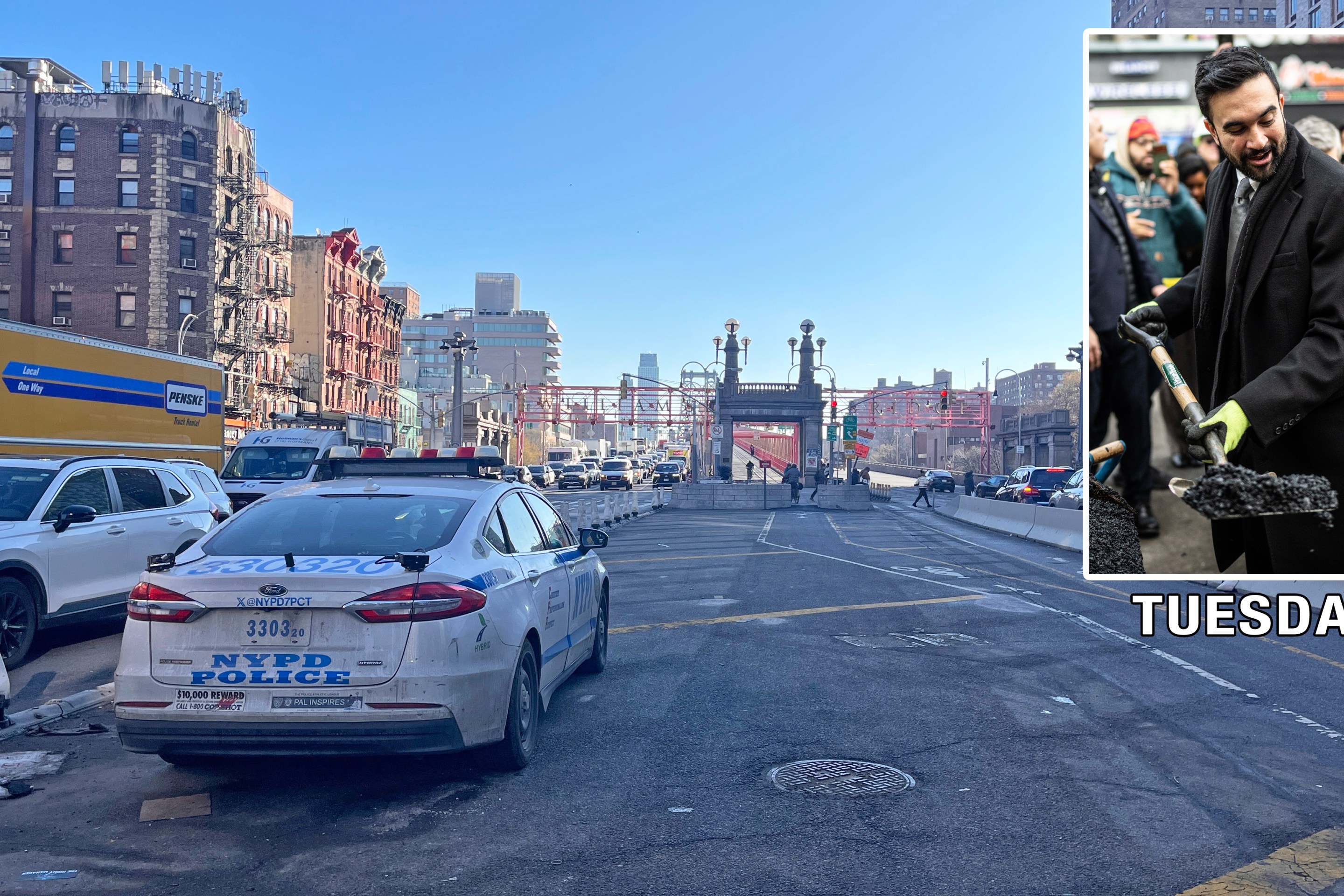Nearly three dozen American cities have adopted the goals of Vision Zero -- the idea that traffic fatalities can and must be systematically eliminated.
But for mayors, declaring a commitment to safer streets is the easy part. Following through with meaningful policies from city agencies to rapidly reduce traffic injuries and deaths is another matter. In Boston, Philadelphia, and other cities that have proclaimed Vision Zero, people are frustrated by the lack of progress.
Are American cities serious about preventing traffic deaths? To make a dent in the problem, elected officials and policy makers have to repurpose street space from driving to other modes, and tackle a car culture that doesn't regard speeding and distracted driving as life-threatening behavior. Not every politician is up for that.
While Vision Zero is still a relatively new policy goal in these cities, the early returns suggest not much has changed so far.
The above chart tracks annual traffic fatalities in six Vision Zero cities, indexed to 2010. The year when each city declared Vision Zero is marked in black. (Chicago first adopted a Vision Zero goal in 2012, and Denver in 2016, to clear up any confusion.)
In most cases, it's a little too soon to pass judgment. But Vision Zero is supposed to imbue traffic safety policy with a sense of heightened moral urgency. Lives are at stake and time is of the essence. Even in cities that committed to Vision Zero a few years ago, progress is hard to discern.
Only New York and Boston are even heading in the right direction, and not very fast.
There are a few reasons why cities have been slow to reduce traffic fatalities, but a major one is the lack of clearly defined goals and benchmarks, says Stacy Thompson of Boston's LivableStreets Alliance. If your city lacks specific targets on the way toward zero traffic deaths, it's hard to hold public officials accountable for their progress (or lack thereof).
Thompson recently collaborated with the Vision Zero Network on a report about how cities can make Vision Zero plans more meaningful and actionable.
Here are a few principles the Vision Zero Network and LivableStreets Alliance say can make these plans really deliver:
1. Commit to a detailed timetable
It's important for cities to put out clearly defined benchmarks to assess whether their traffic safety initiatives are working. The goal isn't just to eliminate traffic deaths but to accomplish that within a specific timeframe, achieving targets along the way.
Some cities start out with a solid timetable but then move the goalposts when it looks like they'll come up short.
Los Angeles, for example, established a Vision Zero policy in 2015. The city was aiming for a 20 percent reduction in deaths by the end of 2017. In 2016, however, traffic deaths jumped nearly 50 percent. Now officials have been trying to make 2016, rather than 2015, the base year.
The Vision Zero Network recommends a 10-year timeline for achieving zero deaths, and setting intermediate benchmarks every two to three years to evaluate progress along the way. If cities don't meet the first benchmark, that means it's time to redouble efforts or change course -- not give up.
2. Transparency
Crash data should be available on a public website, like New York's Vision Zero View. This is one step many Vision Zero cities -- though not all -- have already taken.
Taking is a step further, cities should show the steps they are taking to bring traffic injury and fatality rates down. Seattle's Vision Zero website, for instance, lets people find out where street safety projects are happening, and how far along they are.
In New York, Transportation Alternatives used publicly available data from the city to show the need for faster progress on redesigning dangerous streets.
3. Accountability
Who is responsible for traffic safety outcomes and implementing policy changes? Without clearly defining the agencies and public officials who are accountable for reducing traffic injuries and deaths, the work of Vision Zero can get lost in city bureaucracy and day-to-day routines.
In Philadelphia's Vision Zero Action plan, there are a list of goals, with a lead agency and timeline for implementation assigned to each. That gives advocates the ability to hold officials accountable, and the Vision Zero Network considers it best practice.
The big picture
The recommendations in the report are derived from practices that have helped corporations achieve sustainability goals. Although they can seem mundane, said Thompson, they're necessary to lay the ground to institutionalize the "big cultural shifts" to make Vision Zero a reality.
"We’re trying to give advocates a tool to hold their cities accountable when they say they’re going to do something," said Thompson. "We need to double down and work harder and put more resources into this growing problem."
